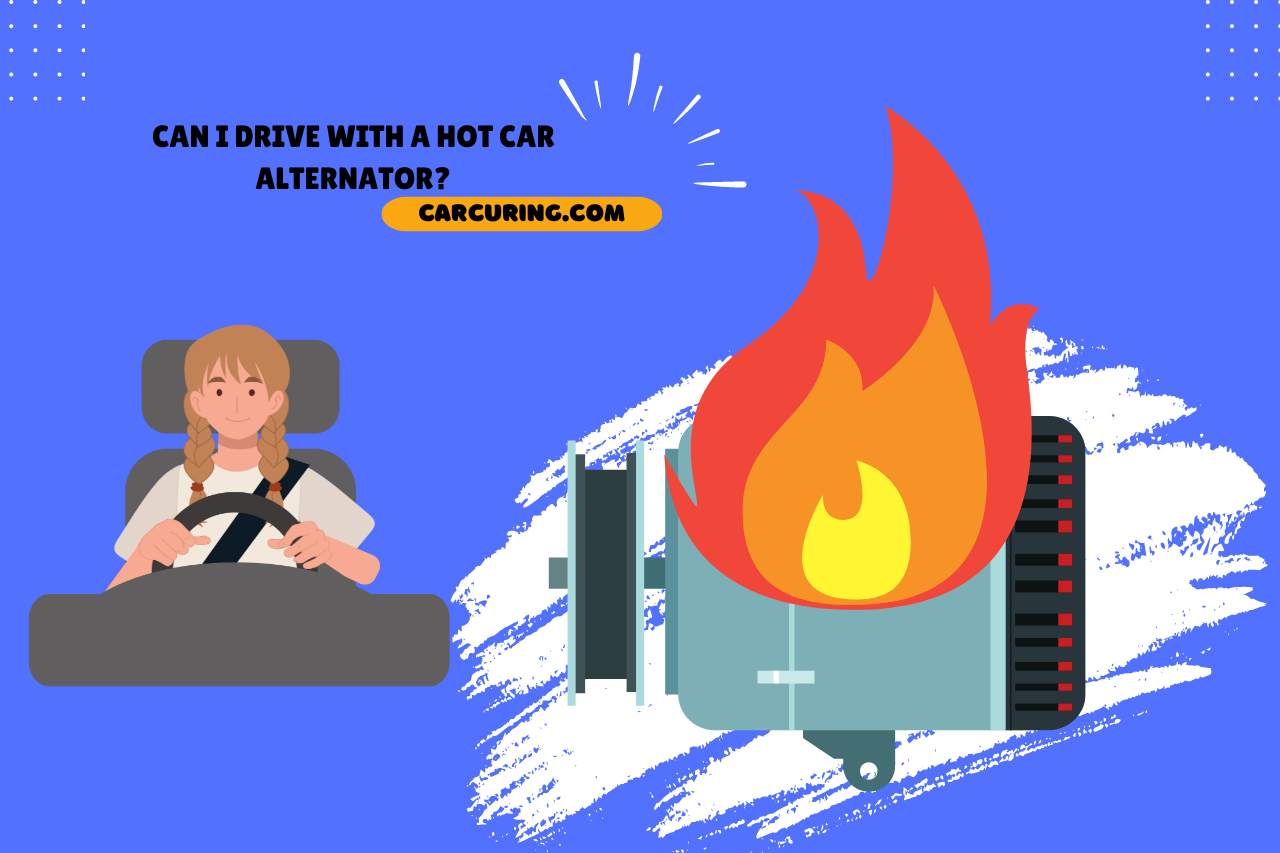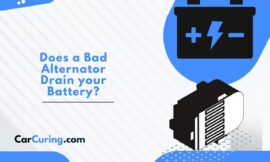When your vehicle’s alternator gets hot, it can badly affect the entire electrical system, so prompt action is necessary to deal with this problem. This guide will reveal to you the causes behind this issue and what are the solutions you can try to minimize the heat of the alternator. Indeed, you should keep alert about worn-out components in your vehicle without letting the alternator show these kinds of signs, as excessive heat can be dangerous. So, keep reading till the end!
Why is My Alternator Getting Hot?
Your vehicle’s alternator is getting hot because of overloading, faulty voltage regulator, aged battery, and so on.
- Overloading: When the alternator is subjected to a higher electrical load than it is designed to handle, it has to work harder to generate more power. This increased workload results in elevated temperatures.
- Faulty Voltage Regulator: A malfunctioning voltage regulator can also cause the alternator to continuously produce a high output voltage. This uncontrolled charging leads to increased electrical resistance and heat.
- Faulty/Aged Battery: An old or faulty battery can contribute to alternator overheating. The reason why, when a battery is no longer in optimal condition, it may demand more power from the alternator to maintain a charge. This increased demand forces the alternator to work harder, generating additional heat in the process. Additionally, a damaged battery may have internal short circuits or increased internal resistance, further stressing the alternator and leading to elevated temperatures.
- Shorted Diodes: Diodes within the alternator rectify AC to DC. If any diodes become shorted, they allow current to flow in both directions, disrupting the normal charging process and generating excess heat.
- Bearing Issues: Worn or damaged bearings within the alternator can create friction. This friction not only reduces the efficiency of the alternator but also generates heat in the process.
- Poor Cooling: Alternators require proper cooling to dissipate heat. If the cooling system is inadequate, the alternator can overheat. It can be a result of blocked ventilation or insufficient airflow.
- Belt Tension: Incorrect tension in the alternator belt affects its ability to rotate smoothly. Then, it puts additional strain on the alternator, causing it to generate more heat than usual.
- Internal Short Circuits: Internal short circuits in the alternator’s wiring can increase resistance, leading to heat generation. These shorts may result from wear, damage, or manufacturing defects.
- High Engine RPM: When you run the engine consistently at high RPMs, it can cause the alternator to work harder, generating more power and consequently producing higher levels of heat.
- Faulty Alternator Components: Malfunctioning internal components, such as stator windings or rotor assembly, can disrupt the normal operation of the alternator, contributing to heat buildup.
How to Fix Alternator Getting Hot?
Fixing an alternator that is getting hot involves identifying and addressing the underlying issues we discussed above. So, rely on these guidelines to cool down your alternator.
- Check Electrical Load: First of all, ensure that the electrical load on the alternator is within its specified capacity. Make sure to reduce unnecessary electrical accessories or address any overloading issues.
- Inspect Voltage Regulator: Examine the voltage regulator for signs of damage or wear. If it’s faulty, a replacement will be the solution. In some cases, the regulator is integrated into the alternator, requiring alternator replacement.
- Verify Battery Condition: Check the condition of the battery. If it’s aged or faulty, replace it to reduce the demand for the alternator.
- Test Diodes: Use a diode tester to check for shorted diodes within the alternator. Replace the alternator or faulty diodes if necessary.
- Bearing Inspection: Check the alternator bearings for wear or damage. You will have to replace worn bearings to reduce friction and prevent excess heat.
- Improve Cooling: Check whether there is proper airflow around the alternator. Clear any obstructions, and check the cooling system. Consider adding an external fan or improving ventilation if needed.
- Belt Tension Adjustment: Adjust the tension of the alternator belt to the manufacturer’s specifications because an incorrectly tensioned belt can cause additional strain on the alternator.
- Address Internal Short Circuits: Inspect the alternator for internal short circuits. If found, repair or replace the affected wiring to eliminate resistance and reduce heat generation.
- Check Engine RPM: Verify that the engine is not consistently running at high RPMs. If it is, address issues with the throttle or engine control system.
- Professional Inspection: If you’re unable to identify or address the issue, seek professional help from a qualified mechanic. Then, he will perform a thorough diagnosis and recommend appropriate solutions.

Can I Drive with a Hot Car Alternator?
Yes, you can drive with a hot car alternator, but it is generally not recommended, as prolonged overheating can lead to damage and potentially cause a breakdown. Here is a concise breakdown of the consequences you can expect from driving with a hot car alternator.
- Risk of Damage: Overheating can damage the internal components of the alternator, such as the voltage regulator, diodes, and other electrical elements. Continued operation under high temperatures may compromise the alternator’s efficiency and longevity.
- Battery Issues: An overheating alternator may struggle to charge the battery properly. This can lead to a drained battery and result in a situation where the vehicle may not start.
- Electrical System Strain: Overheating can put stress on the entire electrical system of the vehicle. This may affect other electronic components, including the starter motor, ignition system, and various sensors.
- Increased Wear: Prolonged exposure to high temperatures accelerates wear and tear on the alternator’s moving parts, such as bearings. This can lead to further complications and decrease the alternator’s reliability.
You May Also Like
- Can a Bad Alternator Cause a Misfire? Unraveling the Mystery!
- Can Water Damage the Alternator? (Essential Tips and Advice)
- Why is My Alternator Smoking? Unveiling the Mystery!
- Does a Bad Alternator Drain your Battery? Drain Issues!
- How to Lubricate an Alternator? Maintaining Your Alternator!
- Can You Jump Start A Car With A Bad Alternator? (Do’s and Don’ts)
- Does a Bad Alternator Make a Clicking Noise? Solving the Mystery!


